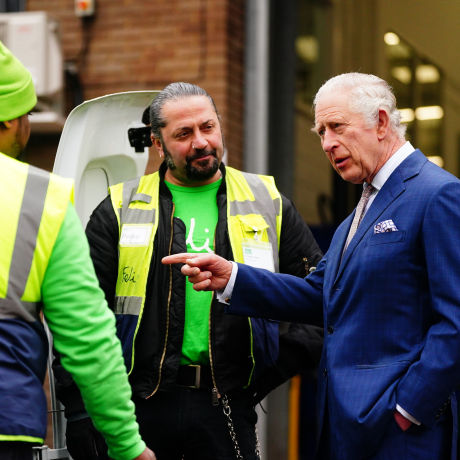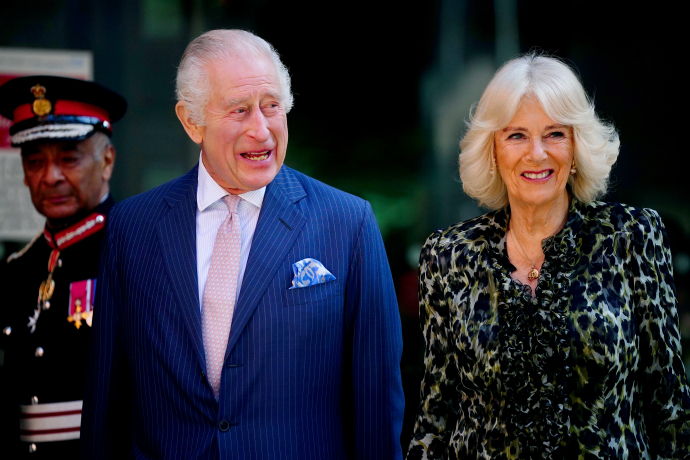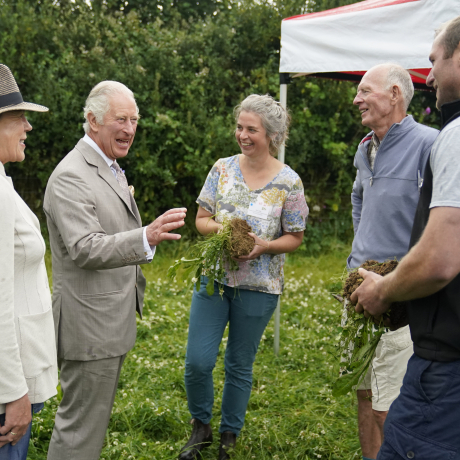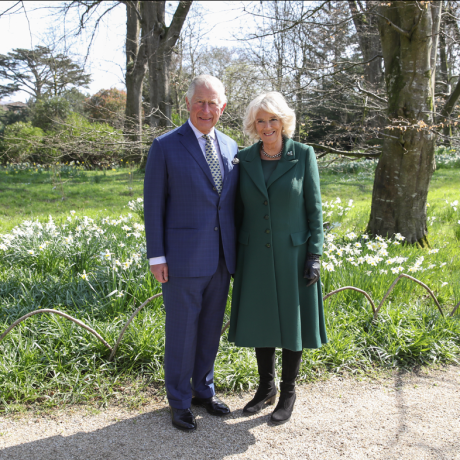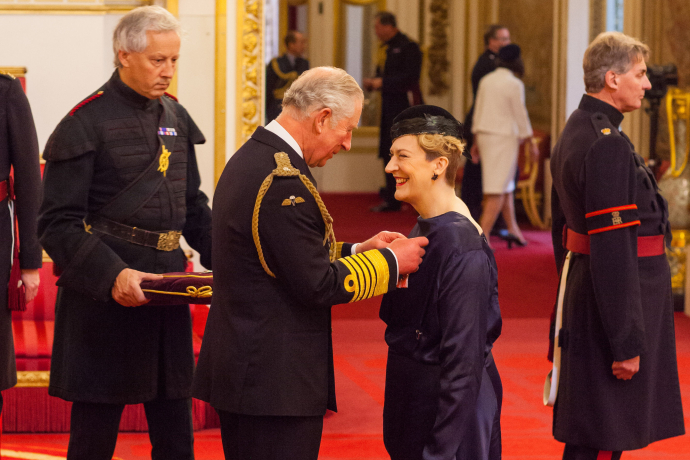An article by The Prince of Wales titled The Seeds of Disaster, The Daily Telegraph
Published
The fundamental difference between traditional and genetically modified plant breeding is that, in the latter, genetic material from one species of plant, bacteria, virus, animal or fish is literally inserted into another species, with which they could never naturally breed. The use of these techniques raises, it seems to me, crucial ethical and practical considerations.
I have always believed that agriculture should proceed in harmony with nature, recognising that there are natural limits to our ambitions. That is why, some 12 years ago, I decided to farm organically - without artificial pesticides or fertilisers. From my own experience I am clear that the organic system can be economically viable, that it provides a wide range of environmental and social benefits, and, most importantly, that it enables consumers to make a choice about the food they eat.
But at a time when sales of organic food are soaring, a development in intensive agriculture is actually removing a fundamental choice about the food we eat, and raising crucial questions about the future of our food and of our environment which are still to be answered. Genetically modified (GM) crops are presented as an essentially straightforward development that will increase yields through techniques which are merely an extension of traditional methods of plant breeding. I am afraid I cannot accept this.
The fundamental difference between traditional and genetically modified plant breeding is that, in the latter, genetic material from one species of plant, bacteria, virus, animal or fish is literally inserted into another species, with which they could never naturally breed. The use of these techniques raises, it seems to me, crucial ethical and practical considerations.
I happen to believe that this kind of genetic modification takes mankind into realms that belong to God, and to God alone. Apart from certain highly beneficial and specific medical applications, do we have the right to experiment with, and commercialise, the building blocks of life? We live in an age of rights - it seems to me that it is time our Creator had some rights too.
We simply do not know the long-term consequences for human health and the wider environment of releasing plants bred in this way. We are assured that these new plants are vigorously tested and regulated, but the evaluation procedure seems to presume that unless a GM crop can be shown to be unsafe, there is no reason to stop its use. The lesson of BSE and other entirely man-made disasters in the cause of 'cheap food' is surely that it is the unforeseen consequences which present the greatest cause for concern.
We are told that GM crops will require less use of agro-chemicals. Even if this is true, it is certainly not the whole story. What it fails to take into account is the total ecological and social impact of the farming system. For example, most of the GM plants marketed so far contain genes from bacteria which make them resistant to a broad spectrum weedkiller available from the same manufacturer.
When the crop is sprayed with this weedkiller, every other plant in the field is killed. The result is an essentially sterile field, providing neither food nor habitat for wildlife. These GM crop plants are capable of interbreeding with their wild relatives, creating new weeds with built-in resistance to the weedkiller, and of contaminating other crops.
Modified genes from a crop of GM rape were found to have spread into a conventional crop more than a mile away. The result is that both conventional and organic crops are under threat, and the threat is one-way.
GM crop plants are also being developed to produce their own pesticide. This is predicted to cause the rapid appearance of resistant insects. Worse still, such pesticide-producing plants have already been shown to kill some beneficial predator insects as well as pests. To give just two examples, inserting a gene from a snowdrop into a potato made the potato resistant to greenfly, but also killed the ladybirds feeding on the greenfly. And lacewings, a natural predator of the corn borer and food for farmland birds, died when fed on pest insects raised on GM maize.
Despite the vast acreages which are likely to be involved, there is no official requirement to monitor genetically modified commercial crops to see exactly what is happening. Think of the agricultural disasters of the past which have stemmed from over-reliance on a single variety of a crop, yet this is exactly what genetic modification will encourage. It is entirely possible that within ten years virtually all of the world's production of staple crops, such as soya, maize, wheat and rice, will be from a few GM varieties, unless consumer pressure dictates otherwise.
English Nature and other official bodies have sounded warnings about the potentially damaging consequences for the environment of introducing GM crops on a wide scale. They have called for a moratorium on the use of at least one of these crops.
Once genetic material has been released into the environment it cannot be recalled. The likelihood of a major problem may, as some people suggest, be slight, but if something does go badly wrong we will be faced with the problem of clearing up a kind of pollution which is self-perpetuating. I am not convinced that anyone has the first idea of how this could be done, or indeed who would have to pay.
We are also told that GM techniques will help to 'feed the world'. This is a fundamental concern to all of us. But will the companies controlling these techniques ever be able to achieve what they would regard as a sufficient return from selling their products to the world's poorest people? Nor do I believe that the basic problem is always so simple.
Where the problem is lack of food, rather than lack of money to buy food, there may be better ways of achieving the same ends. Recent research has shown, for example, that yields from some traditional farming systems can be doubled, and even trebled, through techniques that conserve natural resources while making the best use of labour and management skills.
Do we need to use GM techniques at all? Technology has brought massive benefits to mankind, but there is a danger, especially in areas as sensitive as food, health and the long-term future of our environment, in putting all our efforts into establishing what is technically possible without first stopping to ask whether this is something we should be doing.
I believe we should stop and ask that question, through a wide public debate of the issues of principle which cannot be addressed effectively through science and regulation alone. Is it not better to examine first what we actually want from agriculture in terms of food supply and security, rural employment, environmental protection and landscape, before we go on to look at the part genetic modification might, perhaps, play in achieving those aims?
Obviously, we all have to make up our own minds about these important issues. I personally have no wish to eat anything produced by genetic modification, nor do I knowingly offer this sort of produce to my family or guests. There is increasing evidence that a great many people feel the same way. But if this is becoming a widely-held view, we cannot put our principles into practice until there is effective segregation of genetically modified products, backed by a comprehensive labelling scheme based on progress through the food chain.
Arguments that this is either impossible or irrelevant are simply not credible. When consumers can make an informed choice about whether or not they eat products containing genetically modified ingredients they will be able to send a direct and unmistakable message about their preferences. I hope that manufacturers, retailers and regulators will be ready to take on the responsibility to ensure that this can happen.
Related content

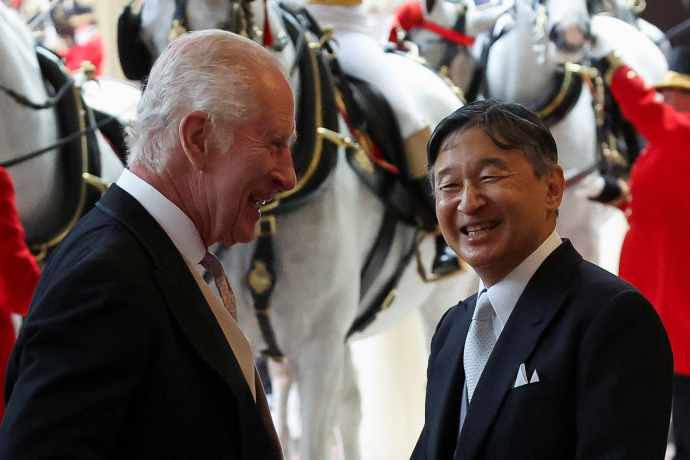

Remarks by The King at Presentation of New Colours, Number Nine Company, Second Battalion, The Irish Guards
Every guardsman standing here today is thus the Heir and Successor to the great legacy, the historic customs and fine traditions of your forebears within the Battalion.
A speech by The King at the D-Day National Commemoration British Normandy Memorial, Ver-sur-Mer, on the 80th anniversary of D-Day
On the beaches of Normandy, in the seas beyond and in the skies overhead, our Armed Forces carried out their duty with a humbling sense of resolve and determination: qualities...
A speech by The King at the UK's National Commemorative Event in Portsmouth to mark the 80th anniversary of the D-Day Landings
The stories of courage, resilience and solidarity which we have heard today, and throughout our lives, cannot fail to move us, to inspire us, and to remind us of what we owe...
More details on the upcoming State Visit by The Emperor and Empress of Japan
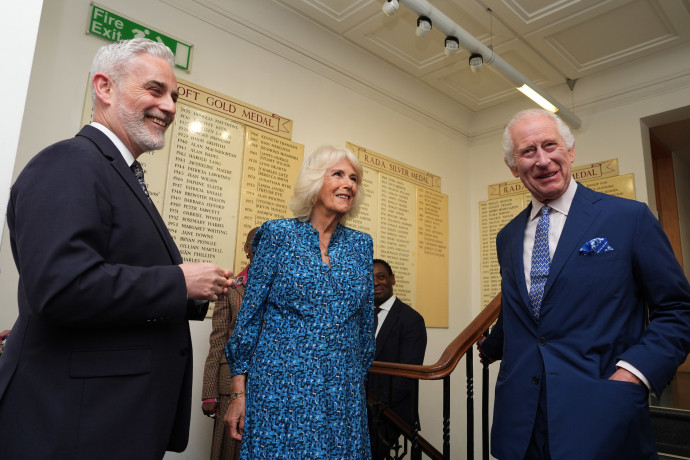
A message from The King to the United Nations 4th International Conference on Small Islands Developing States
Your future is our future. Our islands, our oceans, our planet and, ultimately, all of us need bold and determined action.

The King and Queen, joined by Members of the Royal Family, will mark the 80th anniversary of the D-Day Landings

The King's support of the Arts

A message from The King on the 75th Anniversary on the Founding of N.A.T.O.
Message from The King for the 2024 Royal Maundy Service
It is my special prayer today that Our Lord’s example of serving one another might continue to inspire us and to strengthen all our communities.
Message from The King to mark the 70th anniversary of the end of the Korean War
It is our duty to remember what was once called “the Forgotten War”.
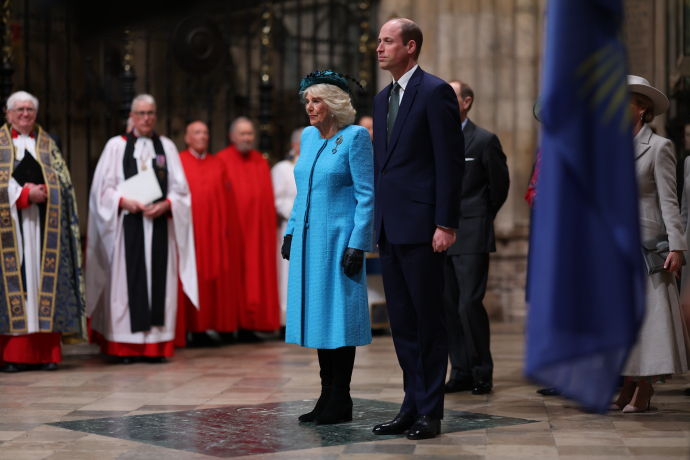
The King's Commonwealth Day Message 2024
The Commonwealth family is strongest when we are connected, through friendship.
A message of condolence from The King to the President of Tanzania following the passing of former Tanzanian President, Ali Hassan Mwinyi
My thoughts and prayers are with former President Mwinyi’s family and the Tanzanian people at this time.
Charities and Patronages
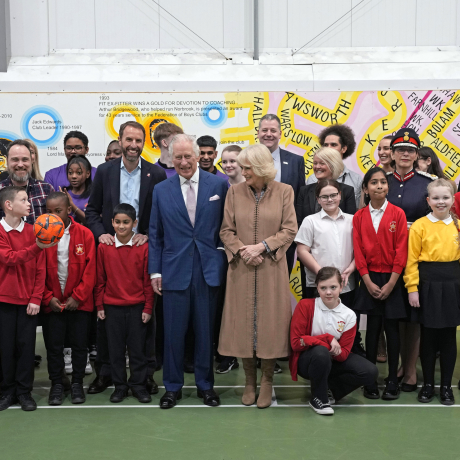
The King's message marking two years of conflict in Ukraine
My heart goes out to all those affected, as I remember them in my thoughts and prayers.

A message from His Majesty The King to Grenada marking their 50th year of Independence
On the occasion of the fiftieth Anniversary of the Independence of Grenada, it gives me great pleasure to send you all my congratulations and warmest good wishes.

A message from His Majesty The King for the launch of Big Help Out 2024
I have long believed that one of the greatest strengths of our nation is our ability to come together and help each other through times of hardship. Throughout my life, I have...
A message from His Majesty The King to Their Majesties King Frederik X and Queen Mary of Denmark
I look forward to working with you on ensuring that the enduring bond between our countries, and our families, remains strong, and to working together with you on issues which...

The King and Faith
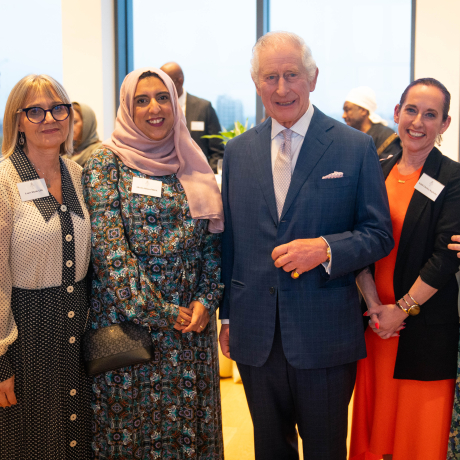
A speech by His Majesty The King at the opening of COP28, Dubai, U.A.E
Change will come by working together and making it easier to embrace decisions that will sustain our world, rather than carry on as though there are no limits – or as though...
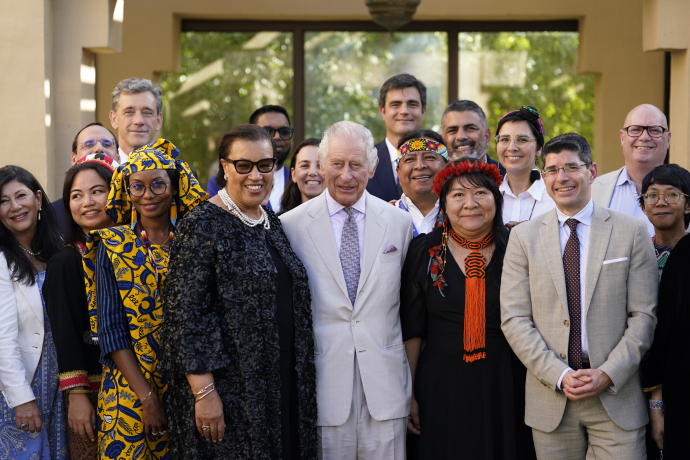
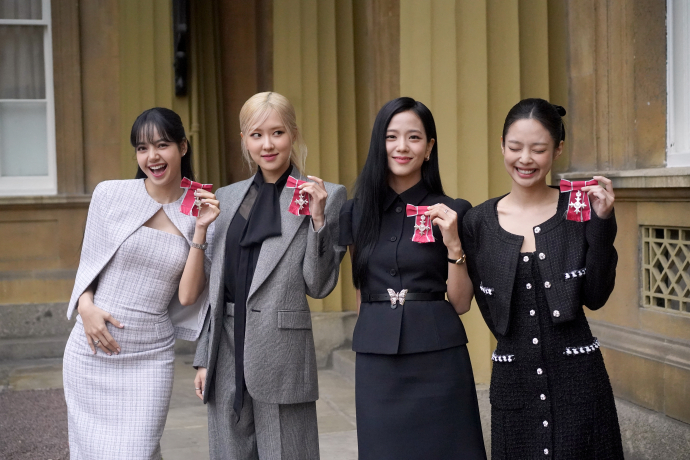
The King's speech at the State Banquet for the Republic of Korea
As our nations strive towards a harmony between progress and preservation, between the past and the present, we can look to the future with great confidence as our peoples...
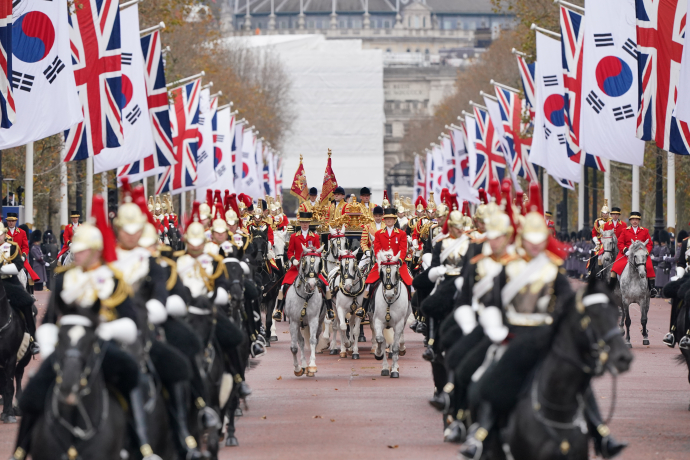
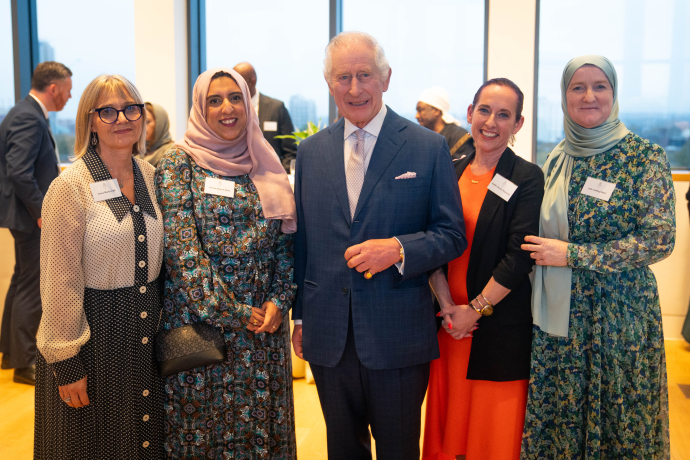
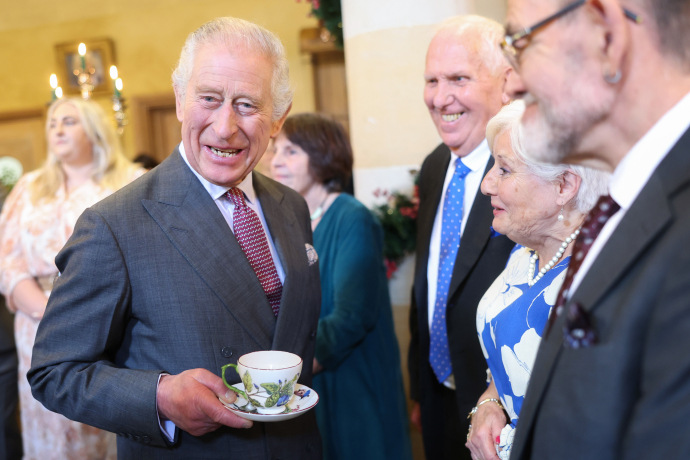
The Coronation Food Project
